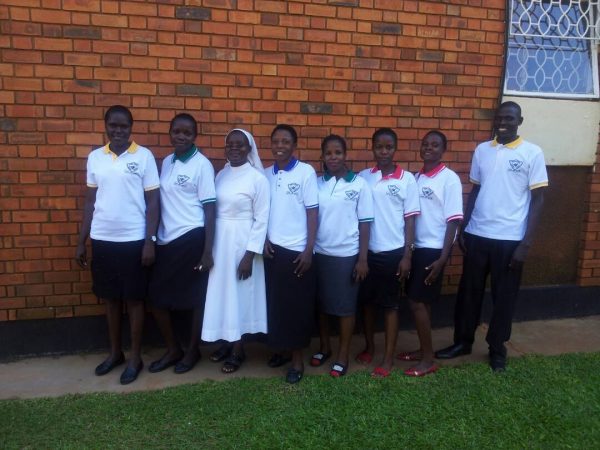New Gretta Scholars – 2017
TGF photo gallery picture to respect privacy of the new Gretta Scholars
In addition to our direct entry and scale-up scholarships, TGF is also investing this year in a number of scholars who are responsible for providing clinical education but do not have the training needed for these responsibilities. Strengthening the knowledge and skills of those providing clinical education allows us to impact wider cadres of nurses and midwives. Since the “enrolled” nursing and midwifery credentials will no longer be recognized in 2020, supporting scale-up scholars (who have these credentials and need to secure a full diploma in nursing or midwifery) and those who provide nursing and midwifery education is a particular priority.
Daniel is the third child in a family of six children (only three of whom survived). His family did well growing coffee until his father became ill with AIDS in 2004, resulting in long hospitalizations before his death. Daniel’s education was precarious—a combination of scholarships, work, and support from his grandfather, who sold the trees on his land to the school—allowed him to complete his secondary school. With support from TGF, he is entering a three-year nursing program.
Grace lost both of her parents to AIDS when she was a child. She worked in the school garden to help pay her fees. Her uncle also died of AIDS when she was in secondary school, and she became fascinated by the fact that was able to be born without HIV despite having HIV+ parents. After graduation, she received a scholarship to Kamuli School of Midwifery, and has been a great advocate for prevention of mother-to-child transmission of HIV. Currently, she is in charge of overseeing over 20 midwives and 50 midwifery students, a position well beyond her education. Support from TGF will allow her to scale up her skills to meet this responsibility.
Caroline is a clinical instructor at a Nursing School. Following the death of her father, the family’s sole breadwinner, when she was young, she received aid from medical missionaries to finish school, and then became a nursing aide. She was then supported to receive her Diploma in Midwifery, then began to teach. She recognizes that her lack of teaching training is a barrier for her and her students, and shows in her students’ end-of-term evaluation. TGF is helping her to get formal tutorship training to build her teaching skills.
Sister Rita’s mother was a traditional birth attendant, and as a child Sister Rita used to accompany her in her work. Eventually, her mother was no longer able to practice because she lacked medical training. After becoming a nun, Sister Rita began working as a nurse’s aide, then became an entry-level “enrolled” midwife, and eventually secured a Diploma in Midwifery. TGF is helping her develop her teaching skills “in order to teach future skilled midwives that will provide quality midwifery services in our country.”
Irene is the child of peasant farmers. One of her schoolmates was raped, became HIV+, and did not disclose this to her family or start anti-retroviral therapy (ART). Subsequently, this friend became pregnant, and the child was born HIV+. The mother died when the baby was only three months old. Losing her friend in this way inspired Irene to think about how she could give hope and encouragement to HIV+ mothers so they could start ART. Support from TGF is allowing her to scale up from an enrolled credential to a full Diploma in Midwifery
Faith is one of nine children being raised by her mother after her father’s death. She was inspired to become a midwife when she was 15 and took care of her auntie during a long labor and delivery at which a midwife was not present. Although the baby was delivered safely, Faith’s auntie bled out and did not survive. Faith went on to become an enrolled midwife, and with support from TGF will continue her studies to achieve a full Diploma in Midwifery.

